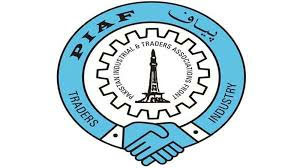Staff Reporter
Lahore
The Pakistan Industrial & Traders Associations Front (PIAF) on Sunday blasted the Oil and Gas Regulatory Authority (Ogra) for approving massive hike in gas rates by up to 221 percent putting additional burden of about Rs40 billion on consumers.
In a statement issued here, PIAF chairman Mian Nauman Kabir said that OGRA has proposed the government to allow gas companies to charge heavy losses of their system from the consumers instead of improving their efficiency, which is a sheer injustice, leading to destruction of the industrial base.
He said that repeated irrational increases in power and gas tariffs are not solution to energy sector problems but the government would have to address inefficiencies in the system.
He said that to meet the revenue shortfall of Sui Northern Gas Pipelines Limited and Sui Southern Gas Company Limited the OGRA has given approval of gas tariff by up to 221 percent, applicable from next year on Jan 1. This is the third time that the government is going to approve such a dramatic surge in gas prices. According to reports, an increase of 191 percent has been approved for the prices of domestic gas and the fertilizer sector will see a hike of 135 percent. Likewise, a 31 percent price increase has been approved for the consumers who fall in the category of roti tandoor, commercial, industrial, zero-rated export industry, captive power plants, compressed natural gas (CNG), cement and power plants. Nauman kabir said that after the implementation of this raise, the price for the local gas in Balochistan, Khyber Pakhtunkhwa and Sindh will be even more expensive than imported gas while the Punjab industry had already been consuming expensive gas.
According to reports, tariff for the first slab of domestic gas consumers has been increased from Rs121 per Million British Thermal Unit (MMBTU) to Rs232/MMBTU; second slab tariff has been increased from Rs300/MMBTU to Rs353/MMBTU; third slab tariff has been fixed at Rs530/MMBTU; fourth set at Rs706/MMBTU; fifth at Rs1273/MMBTU; while sixth tariff slab has been fixed at Rs1679/MMBTU.
Likewise, the tariff for tandoor category of gas consumers has been drastically increased up from Rs780/MMBTU to Rs1,026/MMBTU. Similarly, that for commercial gas consumers has been increased from Rs1,283/MMBTU to Rs1,687/MMBTU.
Mian Nauman said that OGRA is continuously allowing raise in gas prices due to inefficiency in collection of gas dues and its failure to stop theft.
These inefficiencies are actually an unjust tax on honest gas consumers. The industrial sector as a whole pays its dues in-time and there is no line losses/theft in most of the industrial estates and industrial estates in Lahore are one example. He said that the business community is shocked that instead of taking measures to control line losses, policies were being evolved to add to the miseries of traders.
He said that the cost of doing business has already been increased manifold, leading to constant decline in exports but the Sui Southern Gas Company and Sui Northern Gas Pipelines Limited are planning to put additional revenue burden on domestic as well as the industrial consumers. It is unfortunate that gas companies are planning to increase their tariffs, though the government has already raised gas prices by up to 190 percent in July this year under tough conditions of the $6 billion International Monetary Fund (IMF) loan programme.









